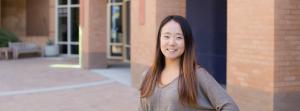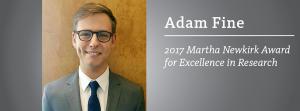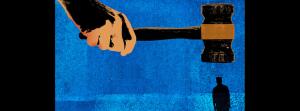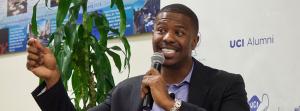Awe can lead to less us-versus-them thinking
May 2017
Experiencing awe can reduce your preoccupation with yourself, and allow you to lose yourself in something much bigger. This, according to research by Paul Piff, assistant professor of psychology and social behavior, helps lead a person to seek what's best for the collective interest and breaks the cycle of us-versus-them thinking.
The health consequences of exposure to traumatic images
May 2017
Repeated exposure to traumatic images and videos can negatively affect a person's mental and physical health, according to research conducted by Roxane Cohen Silver, professor of psychology and social behavior.
And those sorts of images are likelier to fill computer and television screens following a terrorist attack such as the one in Manchester, England, that killed 22 people. In the wake of such attacks, media outlets should be especially careful about how they report on and tell those stories, Silver says.
A harsher punishment: federal drug crime policy shifts under Sessions
Professor Mona Lynch is watching closely as federal drug crime policies become more punitive
The federal prison population fell for the first time in a generation during Barack Obama’s presidency as his attorney general issued memos advising U.S. attorneys to be more restrained in prosecuting drug crimes.
Under President Trump’s attorney general, Jeff Sessions, the outlook is starkly different. And Criminology, Law and Society Professor Mona Lynch, who wrote the book “Hard Bargains: The Coercive Power of Drug Laws in Federal Court,” wants to examine how those changes unfold.
Too costly? Bill would allow poor people to pay less for traffic tickets
May 2017
By the time all the fees are tacked on to a Californian's traffic ticket, the price tag can top nearly $500. For low-income people, such an expense can pose a major financial burden. That's why State Sen. Bob Hertzberg, D-San Fernando, is proposing a bill that would have poor people pay less for traffic violations.
Such a system should be closely examined, though, says Emily Owens, associate professor of criminology, law and society. It could spur people to try to disguise their income -- and possibly even work less to avoid crossing the threshold to a more serious fine.
Community resilience in the face of terrorist attacks
May 2017
After terrorist attacks such as the bombing in Manchester, England, where 22 people were killed, community leaders often urge people show resilience, and continue on with their daily lives, according to Roxane Cohen Silver, professor of psychology and social behavior.
The question 2017 grads should ask themselves: What if?
Entrepreneur and Social Ecology grad Jermaine Griggs '05 to speak at commencement
What if?
What if you could launch a business? What if you could get a perfect score on the grad school entrance exam? What if you could run for political office?
“What if?”
Jermaine Griggs, 2005 Social Ecology graduate, asks that question every day. And he’s become a business owner, a first-generation college grad, a law school applicant, and someday, he hopes, a public leader.









